Key Takeaways
- What are essential French travel phrases? Begin every conversation with easy hellos and please and thank you’s to demonstrate your respect for the francophone culture.
- Say hi and practice exchanging simple phrases in French and useful words and facts to connect with people.
- Master key travel and direction phrases to get around on public transport and locate important points of interest.
- Work up your appetite with restaurant and market phrases, so you can comfortably order at restaurants and savor local markets.
- Learn essential emergency and health words to handle the unexpected and stay safe on the road.
- And go prepared with good wifi, local etiquette and safety tips for a great trip to France.
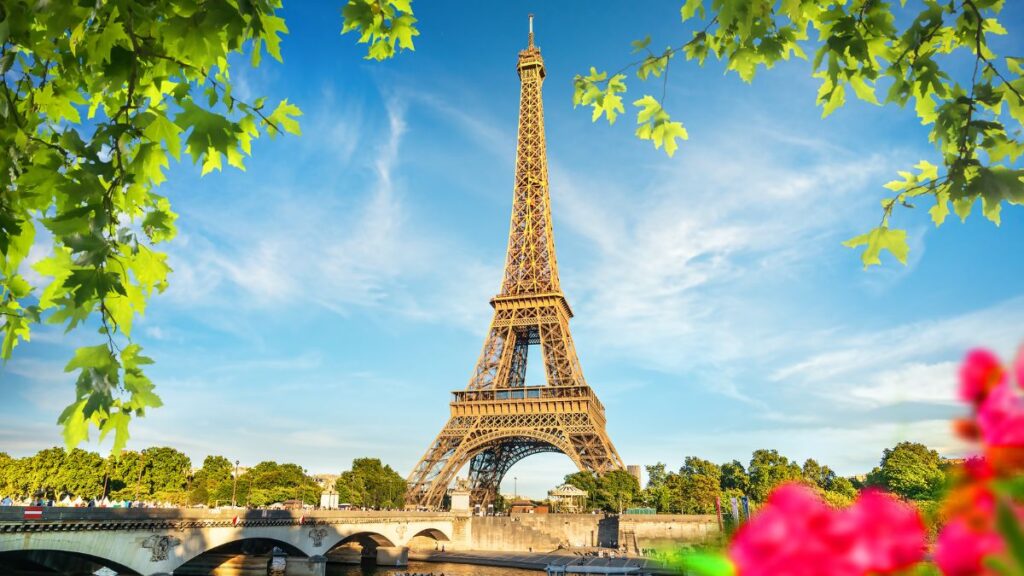
Simple French language words and phrases help you communicate and comprehend basic French in everyday situations. With easy salutations, frequent questions, and courteous responses, you will be able to converse with locals or request directions.
These simple French beginner words come in handy for travelers in France (whether traveling, working, or greeting new people). You’ll discover they are quick wins that save time to learn and enhance your travel experience.
What are essential French travel phrases? The following sections present explicit lists of key phrases and practical ways to use these words.

The Politeness Foundation
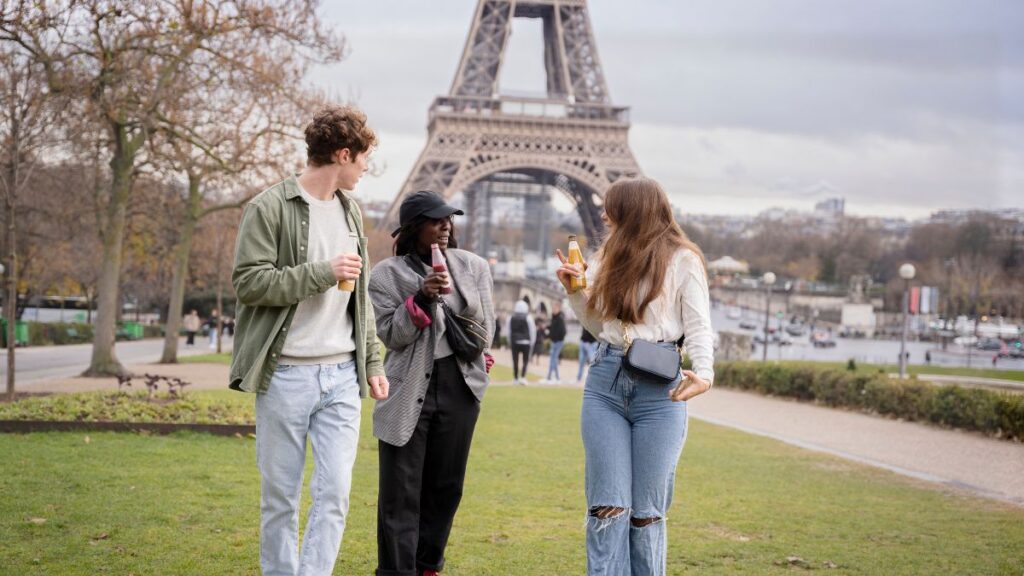
Politeness is key in French culture. Even simple French shows respect and builds trust. Always greet others—Bonjour works almost all day, while Bonsoir is for evenings. Use Salut for casual “hi” with friends, and Au revoir for goodbye in any setting. These common expressions are part of basic French greetings.
Monsieur, Madame, s’il vous plaît (please), and merci (thank you) are essentials. S’il te plaît is the informal “please.” Use merci beaucoup to say “thanks a lot” or say merci et bonne soirée “Thank you and have a nice evening” in the evening.
French has formal (vous) and informal (tu) speech, which affects phrase use. Excusez-moi is polite in public; excuse-moi is used with friends. Reply to merci with de rien (“you’re welcome”). If you make a mistake, you can say je suis désolé(e).
Basic words like oui (yes) and non (no), or simple check-ins like ça va, help start your first conversation. Practice daily to sound confident and feel at home in French environments.
| French | English |
|---|---|
| Bonjour | Good morning/Hello |
| Bonsoir | Good evening |
| Salut | Hi |
| Au revoir | Goodbye |
| Merci | Thank you |
| S’il vous plaît | Please (formal) |
| Excusez-moi | Excuse me |
| De rien | You’re welcome |
| Oui / Non | Yes / No |
Making a Connection

First impressions matter, and introducing yourself politely helps. Say je m’appelle + your name. To ask someone’s name, use Comment vous appelez-vous ?—it’s polite and shows interest.
Basic French lets you share simple info like your background or job, helping build trust and find common ground. Small talk breaks the ice—phrases like Parlez-vous anglais ? or Je ne parle pas bien français set expectations and invite connection. For moments when you don’t understand, saying ne comprends pas is useful in regular conversation.
Need clarification? Say Pouvez-vous répéter, s’il vous plaît ? Practical questions like Où sont les toilettes ? show real-world usefulness in daily use.
Communication is more than words—tone, eye contact, and body language matter too. Listening actively and showing genuine interest meaningful conversations, fosters stronger connections, whether for friendship, work, or cultural exchange. Practice helps build confidence and rapport.
| French | English |
|---|---|
| Je m’appelle… | My name is… |
| Comment vous appelez-vous ? | What’s your name? (formal) |
| Parlez-vous anglais ? | Do you speak English? |
| Je ne parle pas bien français | I don’t speak French well |
| Pouvez-vous répéter, s’il vous plaît ? | Can you repeat, please? |
| Où sont les toilettes ? | Where is the bathroom? |
Navigating Your Journey
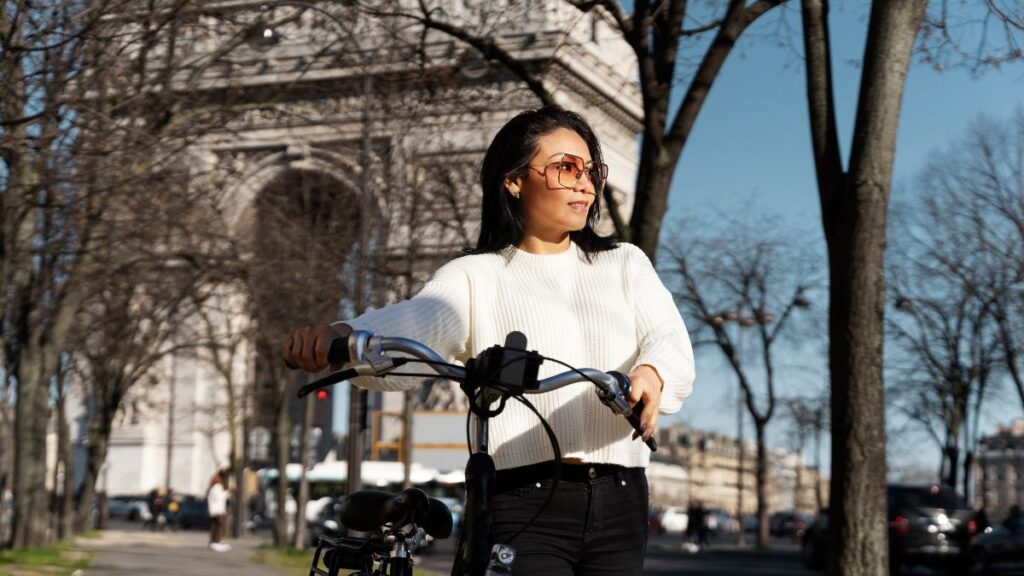
Traveling in France is easier with basic French. Many locals speak little English, so simple phrases go a long way. Learn key transport words like voiture (car), bus, and gare (station). To ask directions, use Où est…? (“Where is…?”) or il une pharmacie près d’ici ?
Know terms like à gauche (left), à droite (right), and tout droit (straight). On transit, use Je voudrais acheter un ticket (I’d like to buy a ticket) or Quelle station ? (Which station?). For prices, ask Combien ça coûte ? and use combien de temps to ask “how long.”
Practice pronunciation—it shows respect. Greet with bonjour, thank with merci, and say au revoir when leaving. A phrasebook or app helps when stuck. French effort is always appreciated!
| French | English |
|---|---|
| Où est… ? | Where is… ? |
| À gauche / À droite | To the left / To the right |
| Tout droit | Straight ahead |
| Combien ça coûte ? | How much does it cost? |
| Je voudrais acheter un ticket | I’d like to buy a ticket |
| Quelle station ? | Which station? |
The Art of French Dining
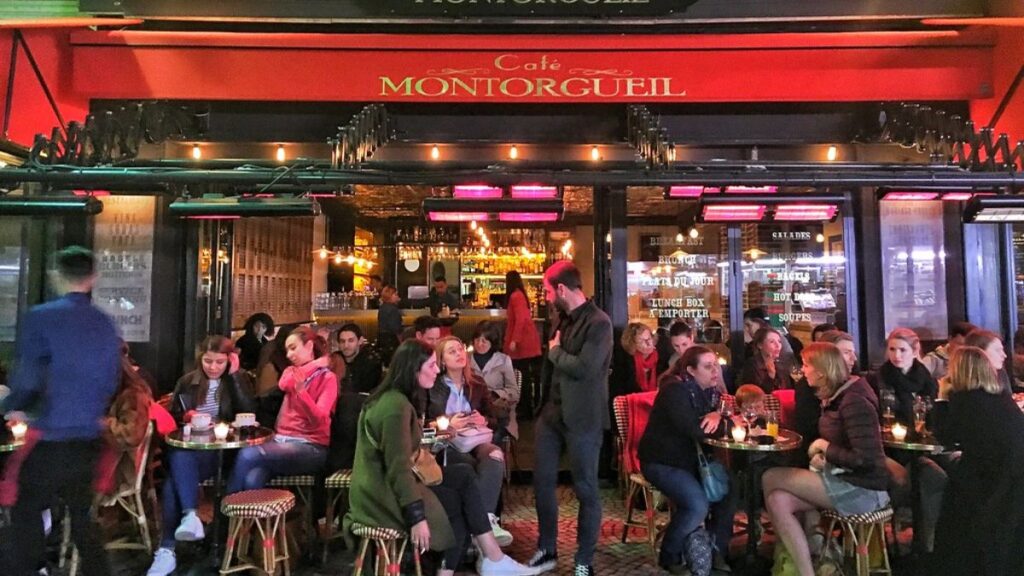
French dining is relaxed and social, often with multiple courses. At French restaurants, let the host seat you and greet staff with monsieur or madame. To request a table, say Je voudrais une table pour deux.
Ask Le menu, s’il vous plaît to see the menu. Order with Je voudrais…, like Je voudrais un verre d’eau. Tap water is free in France, ask for une carafe d’eau.
Start with an apéritif (pre-meal drink), and if unsure, ask Qu’est-ce que vous recommandez ? Use phrases like moi j‘aime followed by a food or drink to express your preferences. Mention dietary needs with Je suis végétalien or Je suis allergique à… Confirm dishes: understanding the ingredients helps, as some meats differ from English names.
End meals with coffee. You’ll often find nearby cafés or a cozy Parisian café perfect for people-watching. If you’re in the mood for dessert, stop by a French pâtisserie for something sweet. For the bill, say L’addition, s’il vous plaît. Tipping isn’t required, but appreciated. Don’t forget a polite merci et bonne journée!
| French | English |
|---|---|
| Je voudrais une table pour deux | A table for two, please |
| Le menu, s’il vous plaît | The menu, please |
| Qu’est-ce que vous recommandez ? | What do you recommend? |
| Je suis allergique à… | I am allergic to… |
| L’addition, s’il vous plaît | The bill, please |
Shopping
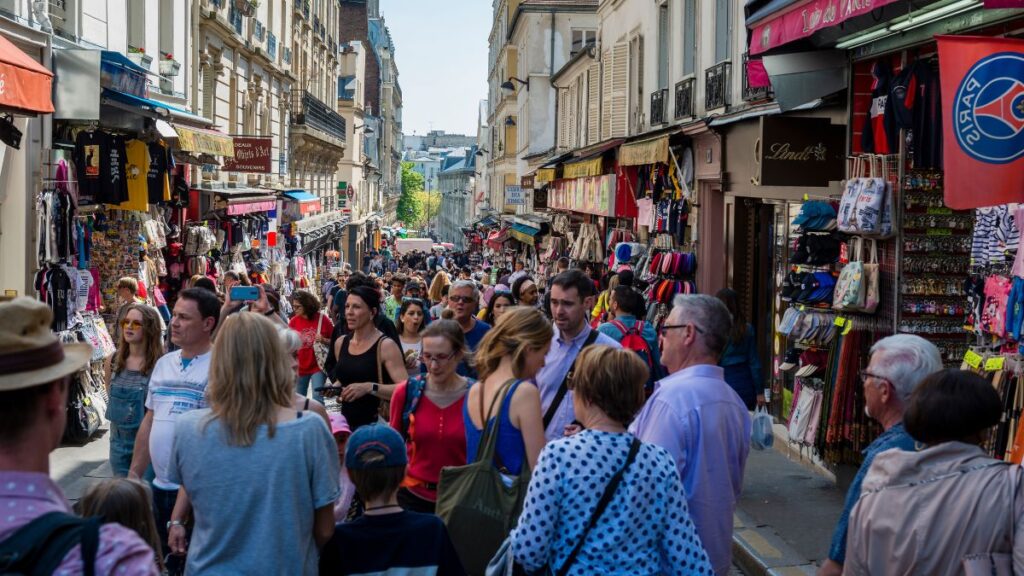
French markets and shops are part of daily life, and a few common French sentences go a long way. Always check hours: some stores close Sundays or midday.
Ask Combien ça coûte ? to find out the price. For other sizes, say Avez-vous une taille plus grande/petite ?—great for clothes, shoes, or bags.
Not ready to buy? Say Je regarde seulement (“I’m just looking”). If the price is high, C’est trop cher means “It’s too expensive.” These are all useful basic sentences for shopping situations.
To pay, ask Où est la caisse ? (“Where’s the checkout?”). Always end with Merci, au revoir to be polite.
These basics help you blend in, shop smoothly, and show respect while browsing for food, deals, or items in souvenir shops.
| French | English |
|---|---|
| Combien ça coûte ? | How much does it cost? |
| Avez-vous une taille plus grande/petite? | Do you have a larger/smaller size? |
| Je regarde seulement | I’m just looking |
| C’est trop cher | It’s too expensive |
| Où est la caisse ? | Where is the checkout? |
Emergencies and Health
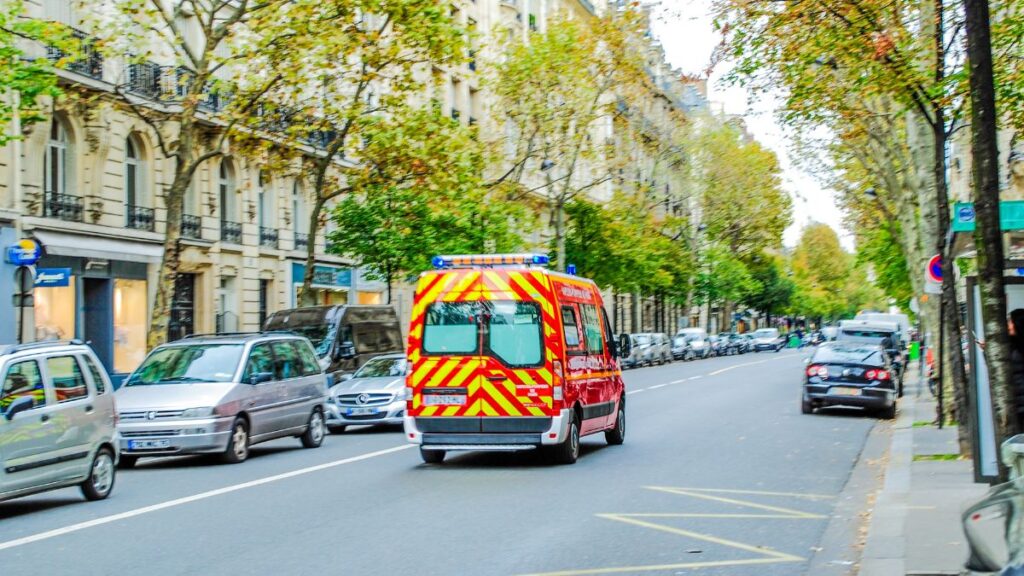
In a medical emergency, , a few key French useful phrases can help. Shout À l’aide ! (“Help!”) or say Appelez une ambulance (“Call an ambulance”). You can also say J’ai besoin d’une ambulance.
Dial 112 (EU-wide), or 15/18 in France for emergency services like SAMU. For lost documents or illness, know J’ai perdu mon passeport and Je suis malade.
Ask Où est la pharmacie la plus proche ? to find medicine fast. Describe symptoms with phrases like une fièvre (fever), mal au ventre (stomachache), or mal de gorge (sore throat).
Serious terms include hypertension, crise cardiaque, and insomnie. Le médecin (doctor) can help explain procedures like radiographie (X-ray), opération, or rééducation (rehab).
A phrase book focusing on specific topics like medical emergencies is a valuable tool to carry.
| French | English |
|---|---|
| À l’aide ! | Help! |
| Appelez une ambulance | Call an ambulance |
| J’ai perdu mon passeport | I lost my passport |
| Où est la pharmacie la plus proche ? | Where is the nearest pharmacy? |
| Je suis malade | I am sick |
Travel Tips When Going to France
If you’re planning a trip to France, it’s more than flights and hotels. Knowing basic conversations and French conversations helps a lot. Learning some essential vocabulary and basic courtesy phrases along with local customs will prepare you for vacation and help you get moving around with ease and respect.
Plan Your Internet Connectivity with Ubigi eSIM
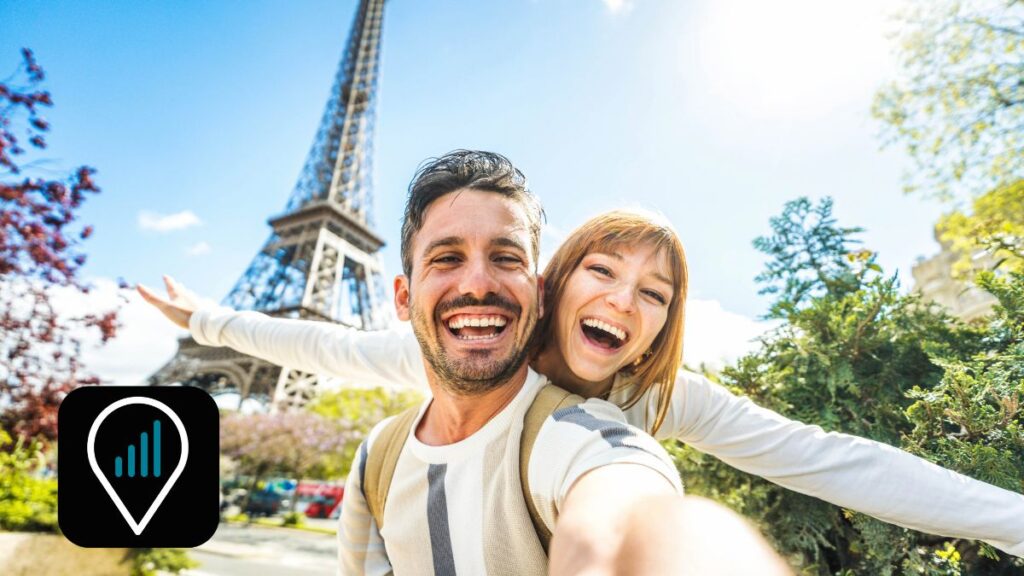
For short stays or light users in France, you can choose a 3GB plan or a 10GB plan. These options are perfect for essential travel apps, light browsing, or keeping in touch on social media.
If you need more data, Ubigi also offers 25GB, 50GB, or even unlimited data plans for France, all valid for 30 days. These larger plans are ideal for longer trips, work on the go, or sharing data via hotspot while on the road.
Traveling through more of Europe? Ubigi also provides regional plans that cover multiple countries across the EU, so you can stay connected without switching providers or paying roaming fees.
All Ubigi eSIM plans are prepaid with no hidden costs. Just create your account through the Ubigi app, select your plan, and activate your eSIM when you land in France. Once you’re connected, you can manage or top up your data directly through the app—no Wi-Fi needed.
Book your eSIM data plan with Ubigi for France and enjoy seamless internet access across France and beyond.
Embrace Politeness
Politeness in France isn’t a nicety, it’s an expectation. Always say “Bonjour” when walking into shops or restaurants. Say ‘Merci’ when you leave. Throwing in a ‘Madame’ or ‘Monsieur’ at the end makes extra respectful.
Even if your French is rudimentary, these words work wonders. Basic greetings get you started on the right foot, open up more amenable service, and demonstrate that you respect the culture.
Learn Local Etiquette
Tipping isn’t required, but you can round up or leave some change. If you sit at a café, your table is yours all the time you wish. Request the check when you’re prepared, they won’t push you out fast.
Tap water is safe and free. Request ‘une carafe d’eau‘ if you want water with your meal. Begin requests with “S’il vous plaît” to come across as polite.
Public Transport
Always purchase metro tickets in advance and validate them before boarding. Hold on to your ticket until you get outside the station : inspectors do come through. Familiarity with the metro map and station names gets you around quick.
Safety
Pickpockets target busy spots. Watch your bags and pockets.
Cash & Cards
Cards go almost everywhere, though, so hold some euros for markets and street food.
Conclusion
To apply French to real life, take easy words and short lines. An easy ‘Bonjour’ or ‘Merci’ frequently yields a warm smile or head bobble from a local. Map or menu assistance? The relevant phrases you’ve seen here will help you get along.
In boutiques, a cafe or on the picturesque streets, striking words are best. striking words are best. The French like pleasantries and etiquette. Even a couple lines can demonstrate thoughtfulness and respect.
These words to hand when you’re abroad or crashing a francophone conversation. You can give them a go today or store them away for that next outing. For more details, see our other guides or practice with a buddy.

Frequently Asked Questions
What are the most useful French words for being polite?
Begin with bonjour, s’il vous plaît and merci. These express politeness and warmth in every context.
How do you introduce yourself in French?
You can say, Je m’appelle.. [my name is..]. It’s an easy (and great!) icebreaker.
What French phrases help when you are lost?
Simply inquire, ‘Où est…?’ (Where is?) or ‘Pouvez-vous m’aider?’ (Can you help me?). These sentences will aid you in receiving directions or help fast.
Which French words do you need for dining out?
Take ‘Une table pour deux, s’il vous plait’ and ‘L’addition, s’il vous plait’. These simplify your mealtime.
What should you say in a French emergency?
Say ‘Au secours!’ (Help!) or ‘Appelez une ambulance!’ (Call an ambulance!) These phrases notify people quickly when you require immediate assistance.
How do you ask for prices when shopping in France?
Inquire, ‘Combien ça coûte?’ This one phrase gets you price savvy before you purchase anything.
What travel tip is most important for visiting France?
Say bonjour first, then ask for assistance. It’s polite, breaks the ice and gets you good service everywhere.





